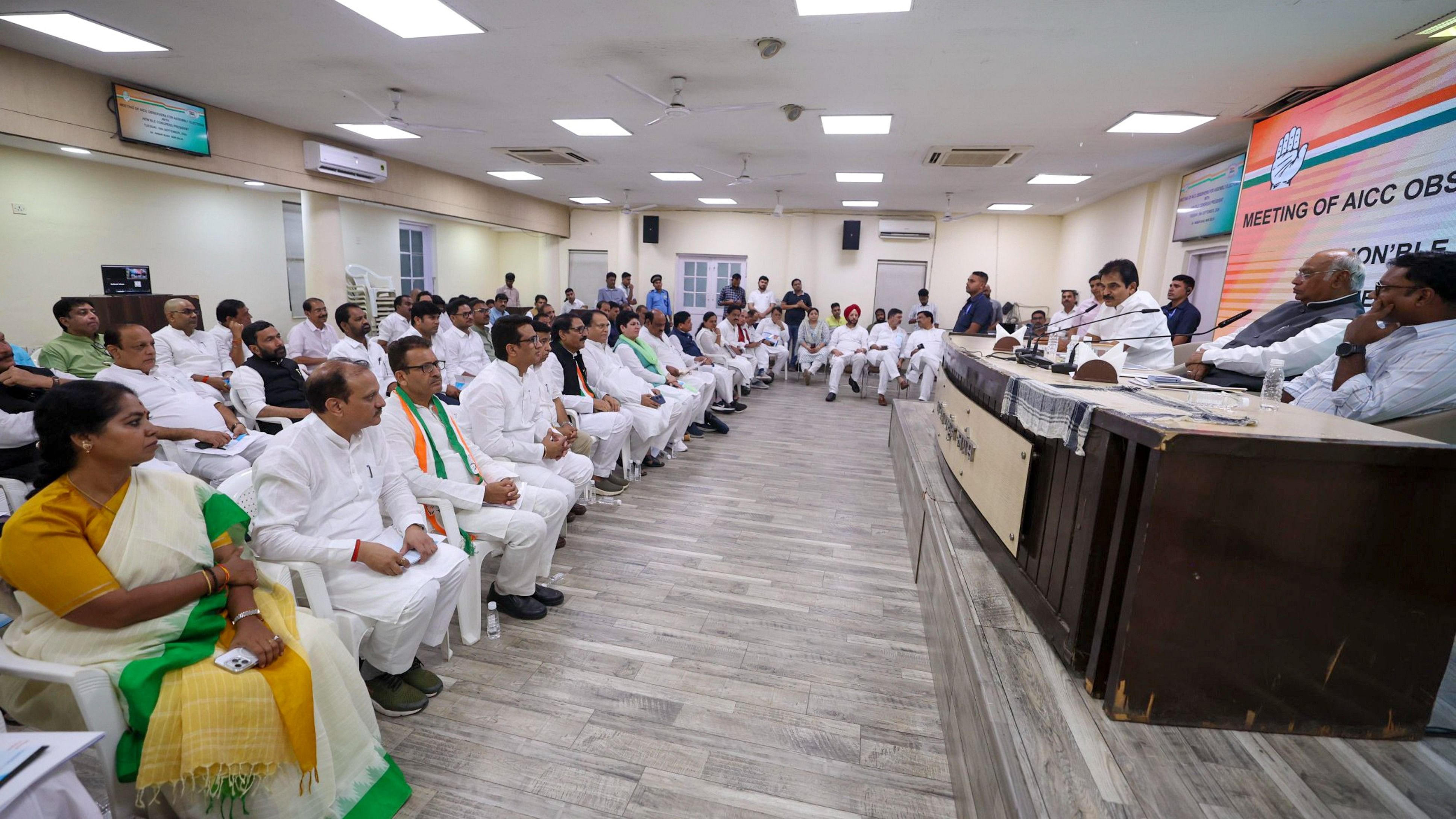
Congress President Mallikarjun Kharge chairs the AICC Observers Meeting at the AICC headquarters in New Delhi, Tuesday, Sept. 10, 2024.
Credit: PTI Photo
New Delhi: With the party “comfortably placed” in Haryana, Maharashtra and Jammu and Kashmir and facing “a little tough” electoral battle in Jharkhand, the Congress strategy for the upcoming Assembly elections will be to focus its narrative on livelihood and state-specific issues and not fall for polarising agenda.
In what is seen as aggressive posturing, the leadership has asked observers appointed at the Lok Sabha seat level to ensure that Congress “controls” the electoral narrative and activates grassroots level organisation as the party did during recent Assembly and Lok Sabha elections.
On Tuesday, Congress president Mallikarjun Kharge, General Secretary (Organisation) KC Venugopal, media department chairperson Pawan Khera and National War Room head Sasikanth Senthil held a meeting with the observers to provide them with a birds-eye view of the party’s poll
strategy.
Sources said Congress views that its position is on a strong wicket in Haryana, Maharashtra and Jammu and Kashmir facing fewer troubles though leaders are not sharing such comfort in Jharkhand where they believe the electoral fight is “a little tough”.
At the session with observers, Kharge and Venugopal spoke about the broader aspects of the party’s strategy, Khera dealt with the communication strategy. Senthil dealt with the responsibilities of observers and their day-to-day functioning.
Sources said the Parliamentary observers will function like the “eyes and ears” of the AICC, providing the central leadership inputs about the ground situation, helping in identifying potential candidates, managing rebels and coordinating star campaigners’ programmes among other things.
These observers have also been asked to spend more time in their assigned seats.
Sources said the Congress will also continue with distributing its famed ‘guarantee cards’ in poll-bound states. With the Election Commission earlier objecting to collecting voters’ details, Congress will only be distributing guarantee cards.
The campaign will continue to follow the party’s success model in Telangana and Karnataka by focusing on livelihood and state-specific issues.
